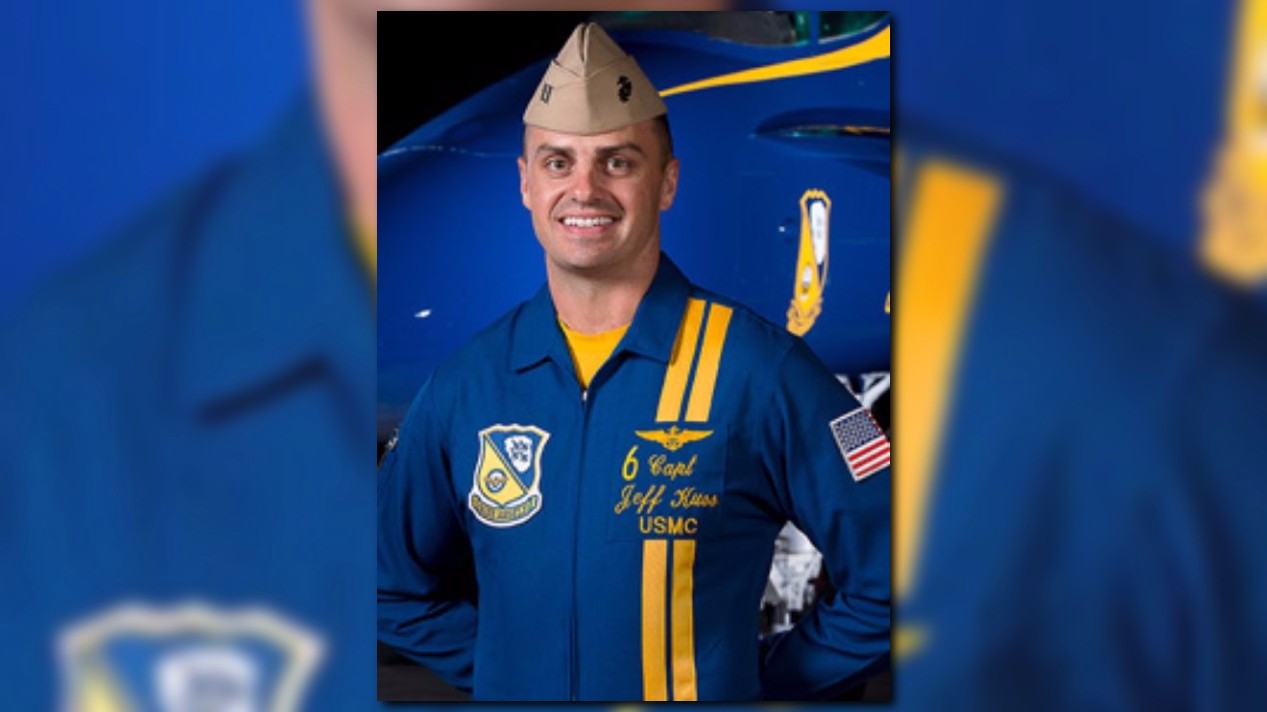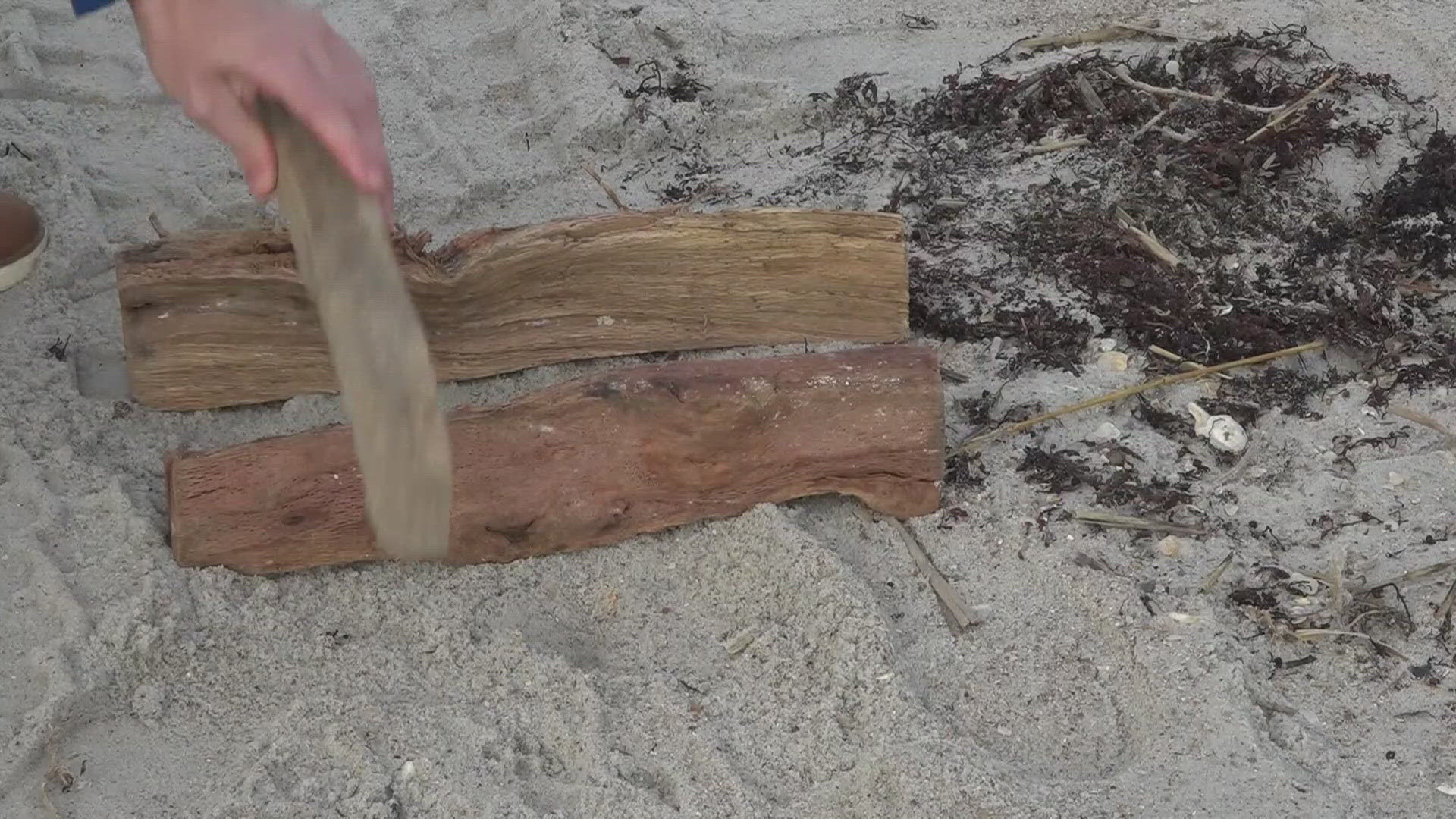PENSACOLA, Fla. — An elite Blue Angels pilot was flying too fast and too low and lost control of his jet in a fatal crash at a Tennessee air show in June, the Navy said in a report released Thursday.
Marine Capt. Jeff Kuss, 32, attempted to eject in the seconds before the crash, the chief of the Navy's Air Training Command said in a report, which was obtained by the Pensacola News Journal through an official records request.
The report cited pilot error as the cause of the crash and said weather and fatigue were contributing factors. The report recommended numerous short-term and longer-term changes to the flight demonstration program.
Kuss, a 32-year-old married father of two, was killed while practicing for an air show in Smyrna, Tenn. He had been with the Blue Angels since 2014 and was one of the six-jet team's two solo pilots.
"Weather conditions and fatigue were contributing causal factors, but ultimately, the mishap was due to pilot error," Vice Admiral Mike Shoemaker, commander of Naval Air Force, U.S. Pacific Fleet, said in his executive summary.
The report determined that Kuss died in the line of duty and not due to misconduct, the Navy said.
"Capt. Kuss represented the best and brightest of Naval Aviation," Shoemaker said in a statement released late Thursday. "His loss is devastating and felt across the Naval Aviation community."
The investigation determined that Kuss did not properly transition from a high climb into a maneuver known as the Split S.
"The aircraft should have had an optimum airspeed between 125 and 135 knots and reached a minimum altitude of 3,500 feet above ground level prior to commencing the inverted maneuver at the top of the high performance climb. Capt. Kuss had a maximum airspeed of 184 knots with a maximum altitude of 3,196 feet above ground level. In layman's terms, he transitioned from the high performance climb to the Split S too low too fast, and by not deselecting his afterburners during the maneuver, he continued to accelerate," the report stated.
The report also noted that Kuss, the team's No. 6 solo pilot, had noted billowing cloud conditions before takeoff and had a conversation with another pilot about how the clouds would impact a specific maneuver. The clouds might have influenced his decision to begin the Split S maneuver at too low of an altitude, the report stated. Kuss also performed a 540-degree roll during his climb that was not part of the performance procedures, the report noted.
The report also suggested Kuss was fatigued, noting that he made paperwork and procedural errors before takeoff that were unusual for him.
"Capt. Kuss was viewed as one of the most meticulous and professional Blue Angel pilots by his teammates, but leading up to the mishap flight, he committed errors that appear out of his norm," the report stated.
In mandating a list of changes for the program, Shoemaker cited the overall pressure on the team and its pilots. And he said there are not backup pilots who can perform if a pilot is fatigued.
"The pressure to not let the team down and miss a performance, although unspoken, is tremendous," he wrote.
"We have well-established processes in the fleet for the aviator to 'take a knee' and tell the operations officer that he/she is not ready for a flight, and that freedom must extend to the Blue Angels as well," he wrote.
Immediate changes mandated by the report included removing the Split S maneuver from shows, mandating additional safety and altitude calls be made by pilots during performances, requiring weather decisions be made by the team boss with concurrence from the team and requiring a higher altitude and safety buffer for the remainder of the season.
Longer-term changes mandated by the report included changing pilot-selection criteria to look at applicants' overall career flight performance, assessing all altitudes and maneuvers to add safety buffers, having regular breaks in the show season and having the commanding officer assigned earlier to allow that officer more time to get familiar with the demonstration and the team.
The Navy ordered a stand down after the June crash, which is standard procedure. The Blue Angels resumed their demonstration schedule on July 2. The team's season concludes Nov. 11 and 12 with the annual homecoming air show at Pensacola Naval Air Station. The show will celebrate the 70th anniversary of the flight demonstration team.
Kuss was a native of Durango, Colo., and served in Afghanistan before joining the Blue Angels.


